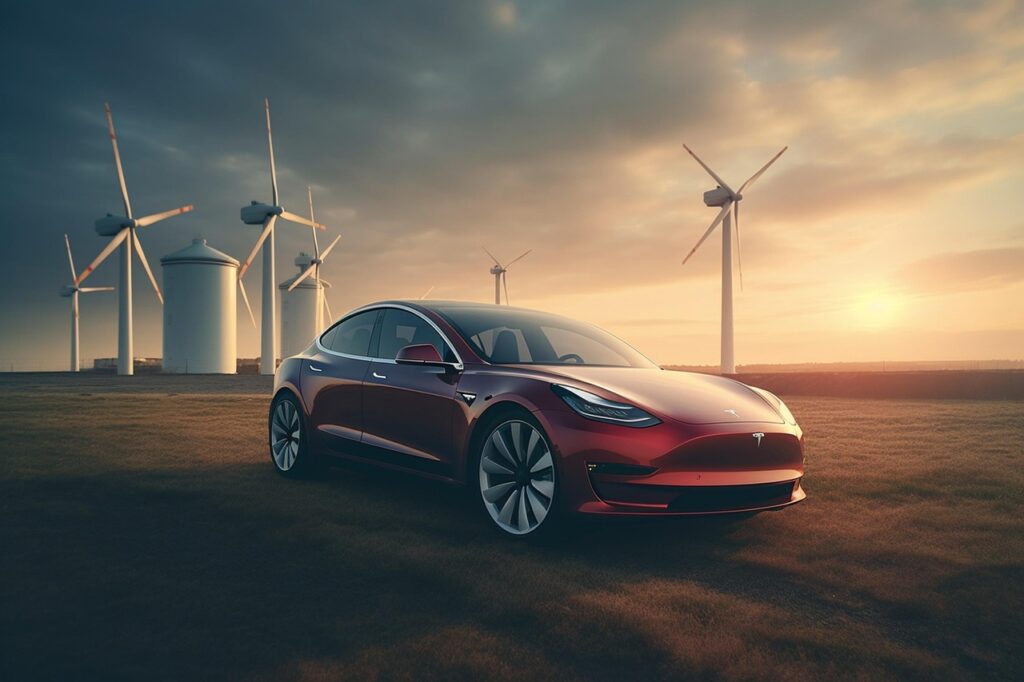Tesla, the name synonymous with electric vehicles (EVs) and sustainable transportation, has revolutionized the automotive industry. But what exactly led to Tesla’s success in a market dominated by traditional gasoline-powered cars? This blog delves into the key factors that propelled Tesla to the forefront of the electric car revolution.
Early Vision and Innovation
The story of Tesla’s success begins with a visionary leader – Elon Musk. In 2003, Musk, along with Martin Eberhard and Marc Tarpenning, envisioned a future dominated by clean energy transportation. This vision led to the founding of Tesla, named after Nikola Tesla, a pioneer in electricity and electromagnetism.
Tesla’s early focus was on developing high-performance electric sports cars. Their first vehicle, the Roadster, launched in 2008, became a game-changer. It proved that electric cars could be exciting, luxurious, and capable of rivaling traditional gasoline-powered sports cars in performance.
Building a Compelling Product
Tesla’s success isn’t just about innovation; it’s about creating a compelling product that appeals to consumers. Here are some key elements of Tesla’s product strategy:
- Performance: Beyond just being electric, Tesla vehicles boast impressive acceleration, handling, and range, defying expectations of electric cars.
- Technology: Tesla integrates cutting-edge technology into its vehicles, including driver-assistance features, a massive touchscreen infotainment system, and over-the-air software updates.
- Design: Tesla vehicles have a sleek, minimalist design that stands out from the crowd.
- Brand Image: Tesla has cultivated a brand image associated with luxury, innovation, and environmental responsibility, appealing to a specific customer demographic.
Focus on Sustainability
A core aspect of Tesla’s success is its commitment to sustainability. By offering electric vehicles with zero tailpipe emissions, Tesla provides a solution to concerns about climate change and air pollution. This resonates with environmentally conscious consumers and aligns with the growing demand for clean energy solutions.
Disruptive Business Model
Tesla challenged the traditional automotive industry model by vertically integrating its operations. This means they control more aspects of the car-making process, from battery development and production to owning and operating their own network of charging stations (Superchargers). This level of control allows Tesla to streamline production, optimize efficiency, and ensure a seamless customer experience.
Direct Sales Strategy
Another way Tesla disrupted the status quo is by bypassing traditional car dealerships and implementing a direct sales model. This allows them to control the customer experience from start to finish and capture a larger share of the profits.
Embracing Technology
Tesla has been at the forefront of using technology to enhance the customer experience. Their online ordering platform lets customers research, configure, and purchase a car entirely online. Additionally, Tesla vehicles receive over-the-air software updates that improve performance, add new features, and fix bugs – an approach unheard of in the traditional automotive industry.
Challenges and Overcoming Obstacles
Despite its success, Tesla’s journey hasn’t been without hurdles. Production delays, battery fires, and concerns about autopilot technology have presented challenges for the company. However, Tesla has consistently addressed these issues head-on, demonstrating a commitment to continuous improvement.
The Future of Tesla
Tesla’s success has far-reaching implications for the future of transportation. It has spurred significant investment in electric vehicle technology and infrastructure, encouraging other manufacturers to enter the electric car space. This competition benefits consumers by driving innovation and offering more choices.
Tesla continues to push boundaries. With ambitious plans for future vehicles, including the Cybertruck and the Semi, and a focus on renewable energy solutions like solar panels and battery storage, Tesla is poised to remain a leader in the clean energy revolution.
Conclusion: Lessons from Tesla’s Success
Tesla’s success story offers valuable lessons for businesses in any industry. It highlights the importance of visionary leadership, a focus on innovation, building a compelling product, and a commitment to sustainability. By embracing technology, disrupting traditional models, and continually adapting, Tesla has paved the way for a greener future in transportation. Whether you’re a car enthusiast or simply interested in innovation, Tesla’s journey is a testament to the power of vision, perseverance, and a relentless pursuit of a better tomorrow.


